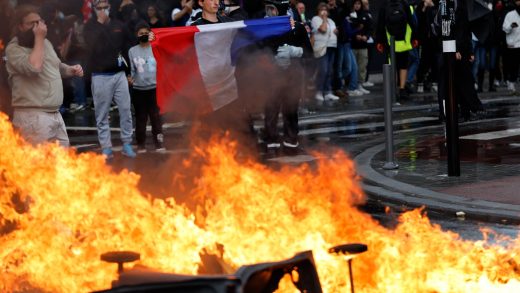The Pukpuk Treaty is due to be signed soon by PNG Prime Minister James Marape and Australia’s PM Anthony Albanese.
Published On 3 Oct 2025
Papua New Guinea (PNG) has approved a mutual defence treaty with Australia in a major step forward for the landmark security deal.
Papua New Guinea’s Prime Minister James Marape announced in a statement on Thursday that his government cabinet had given its approval of the deal, and praised the “elevated” ties with Australia.
Recommended Stories
list of 4 itemsend of list
“This reflects the depth of trust, history, and shared future between our two nations,” Marape said in a statement.
The Pukpuk Treaty was originally set to be signed in September to coincide with Papua New Guinea’s 50th anniversary of independence, but Marape’s cabinet failed to reach a quorum.
Australian Prime Minister Anthony Albanese said on social media that he looked forward to signing the treaty and establishing a “formal alliance” with PNG.
The text of the Pukpuk Treaty has not been made public, but some details were released in Marape’s statement, including reference to a mutual defence clause, while laying out provisions for PNG to modernise its military capabilities and develop a national reserve force of 3,000 volunteers.
The treaty will also create a path for 10,000 Papua New Guineans to serve in the Australian Defence Force, while PNG also aims to build up its defence force to 7,000 troops, according to Marape’s office.
PNG has a population of more than 11 million people and is one of the most diverse countries in the world, according to the World Bank, but it also struggles with recurring violence among its more than 10,000 ethnic clans.
Australia assumed control over PNG as a colonial power in 1902 and administered the country until 1975, but both sides have remained close since then, according to Jennifer Parker, an Australian defence expert.
Parker told Al Jazeera the treaty looks set to codify the two countries’ existing defence relationship and could earn Australia its first treaty ally in 70 years.
Australia only has two official allies – the United States and New Zealand – under the 1951 ANZUS treaty, while PNG currently has none.
“We won’t know before we see the specifics of the treaty, but there is a view it will include a general obligation to support and defend each other,” Parker told Al Jazeera.
Justin Bassi, executive director of the Australian Strategic Policy Institute, said the deal will also pave the way for “Australia to deepen its investment in [Papua New Guinea’s] defence sector to meet emerging challenges.”
The treaty comes at a time when Australia is wary of China’s growing presence in the Pacific and amid concerns that it could establish a military base in the region, according to Parker.
Despite Canberra’s concerns, the treaty will also include provisions to respect “third-party” defence relationships between Port Moresby and other countries, according to Marape’s office.
That phrasing appears to be a tacit reference to China, which is one of PNG’s most important trading partners and a source of foreign direct investment.
The Chinese embassy in Port Moresby said in September that PNG should “uphold its independence” and not sign a treaty that is “exclusive in nature” and restricts it “from cooperating with a third party”.



